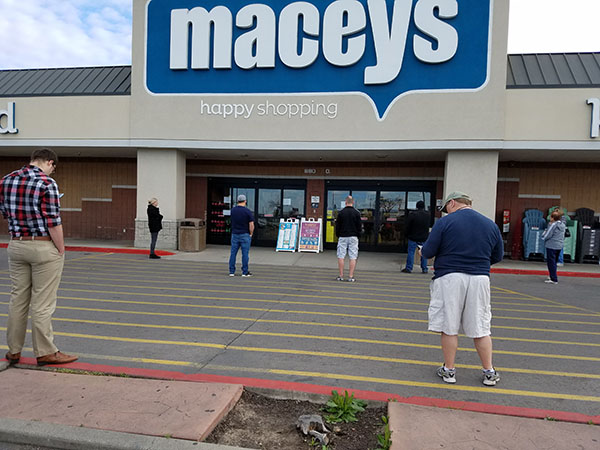On Education
Two days ago the governor of my state announced that schools will continue with distance learning through the end of the school year. It was a result I’ve been expecting since mid-March, so it didn’t impact me much. Yet from the reactions on social media, I realized that not everyone has already let go of school. They’d retained hope that things could go back to normal. That their high school seniors would get to have prom, graduation, yearbook day. I suppose I’ve already had practice letting go of life experiences that I expected my kids to have, but they didn’t get to have. I’ve had three kids depart high school and only one of them had a graduation ceremony. I thought I would get to help my kids navigate prom and dating, only one of them has done any of that. Depression and anxiety had already stripped away the social trappings of school that so many are mourning this week. Their grief is real and hard.
I was a little surprised at my high school kid’s reaction to the news of cancellation. He wasn’t surprised either, but having it be official flipped some mental switch. He hadn’t even logged into his online classrooms. The day after cancellation, he did. I don’t know how far he’ll take the next steps, but he seems to have internalized that if he wants an education, he is the one who has to put in the time. Now he has to figure out how to get himself to put in time on a daily basis when there is no set schedule except one he creates for himself.
I skim read an article this morning about how lockdown orders are likely to permanently shape the way that teens think about the world. Much of what the article said made sense to me. Because of brain development that happens during the teen years, the experiences of those years create hardwired reactions that are buried deep in the psyche. Today’s teens are having a collective experience of isolation that is unlike anything a generation of teens has experienced before. Isolation can be collective because of the internet. This will change the generation they become and no one knows how yet. On the other hand, every teenager has been shaped by their experiences and their choices relating to those experiences. It is entirely normal for teens to be afraid of adulthood and the future. It is entirely normal for teens to have their hopes and expectations smashed in one way or another and for them to then have to learn how to pick up the pieces and keep going. So this is all yet another case of life being completely normal and completely unprecedented at the same time.
I know that quarantine is definitely shaping the young adults in my household. Their relationships to each other and to the world at large have shifted. None of us knows for certain what the opportunities and options will be three months from now. I think we’ll be lucky to get school back in the fall and that it will only be accomplished by halving the average class size in Utah. Since the facilities and staff aren’t available to do that easily. I wouldn’t be surprised for there to be A day students and B day students. Or perhaps one week on, one week off. With only half the student body attending at a time. In the meantime, my son has to figure out how to make himself work and I have to stand back and let him struggle with it.
